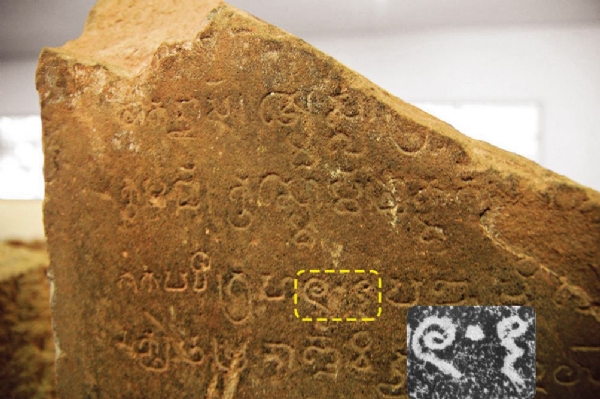Vishwaguru Bharat 4: India's discovery of 'nothing' & the story of 'Zero'
11 Aug 2023 15:36:17
The discovery of zero is one of the most remarkable achievements in the history of mankind, and its origin in ancient India holds immense significance for the evolution of human thought and knowledge. The fourth article of the series 'Vishwaguru Bharat' explores the discovery of zero in India and delves into the profound impact the Indian discovery had on shaping the ancient world's mathematical, scientific, and philosophical landscape.

The Emergence of Zero: India's Mathematical Ingenuity
The concept of zero, symbolized as "0," is not merely a numerical placeholder but a profound abstraction that revolutionized mathematical calculations. Its origins can be traced back to ancient Indian civilizations, where mathematicians grappled with numerical systems and positional notation. By the 9th century CE, Indian mathematicians had fully embraced the idea of zero as both a numeral and a concept, giving it a definitive place in numerical representation.
Place Value System and the Role of Zero
One of the pivotal contributions of Indian mathematicians was the development of the place value system, which allowed numbers to be expressed based on their position in a numeral. This breakthrough enabled the representation of larger numbers with fewer symbols, enhancing the efficiency of calculations. The introduction of zero as a placeholder allowed the place value system to function seamlessly, enabling the expression of complex mathematical concepts and calculations.
A Paradigm Shift in Mathematics and Science
The introduction of zero as a mathematical concept brought about a paradigm shift in both mathematics and science. Zero enabled the formulation of more sophisticated arithmetic and algebraic operations, making calculations more efficient and precise. Indian mathematicians like Brahmagupta, who lived in the 7th century CE, provided foundational rules for the use of zero in mathematical operations, contributing to the advancement of algebraic techniques.
In addition to mathematics, the concept of zero found applications in various scientific fields, including astronomy and geometry. Accurate astronomical calculations relied on numerical representations that accommodated zero as a placeholder, enabling the prediction of celestial phenomena and the formulation of calendars. The concept of zero also influenced geometric and architectural designs, allowing for more intricate patterns and structures to be conceived and constructed.
Philosophical Implications of Zero
The discovery of zero in India carried profound philosophical implications as well. The concept challenged traditional philosophical notions about existence, nothingness, and the nature of reality. The philosophical inquiry into the void and the infinite resonated with the mathematical understanding of zero as both a numeral and an idea representing absence. This intersection of mathematics and philosophy spurred debates about the nature of the universe, enriching intellectual discourse in ancient India.
Transmission to the World
The significance of the discovery of zero did not remain confined to India's borders. Through trade routes and cultural exchanges, the concept spread to other civilizations, influencing the development of mathematics in the Middle East and eventually reaching Europe. Arab scholars embraced Indian numerals, including zero, during the Islamic Golden Age, which laid the foundation for the modern numeral system we use today, known as Arabic numerals. Recognizing the Indian connect of the system, many refer to this system as the Hindu-Arabic numerals.
Revolutionizing the Modern World
The introduction of zero revolutionized the modern world's mathematical, scientific, and technological progress. The concept of zero, coupled with the place value system, laid the groundwork for the creation of advanced mathematical fields such as calculus, which has had a profound impact on physics, engineering, and computer science. The digital revolution, built upon binary code, is a direct descendant of the concept of zero as a numerical placeholder.
The discovery of zero in ancient India was a watershed moment in the history of human thought and progress. Its introduction reshaped mathematical, scientific, and philosophical paradigms, enabling the development of sophisticated calculations, advanced scientific theories, and profound philosophical inquiries. The concept's journey from ancient India to the rest of the world underscored the interconnectedness of human civilizations and the enduring legacy of intellectual contributions. Zero, a seemingly abstract concept, proved to be an essential pillar of human knowledge, shaping the ancient world's understanding of mathematics, science, and philosophy, and setting the stage for the remarkable advances of the modern era.
--